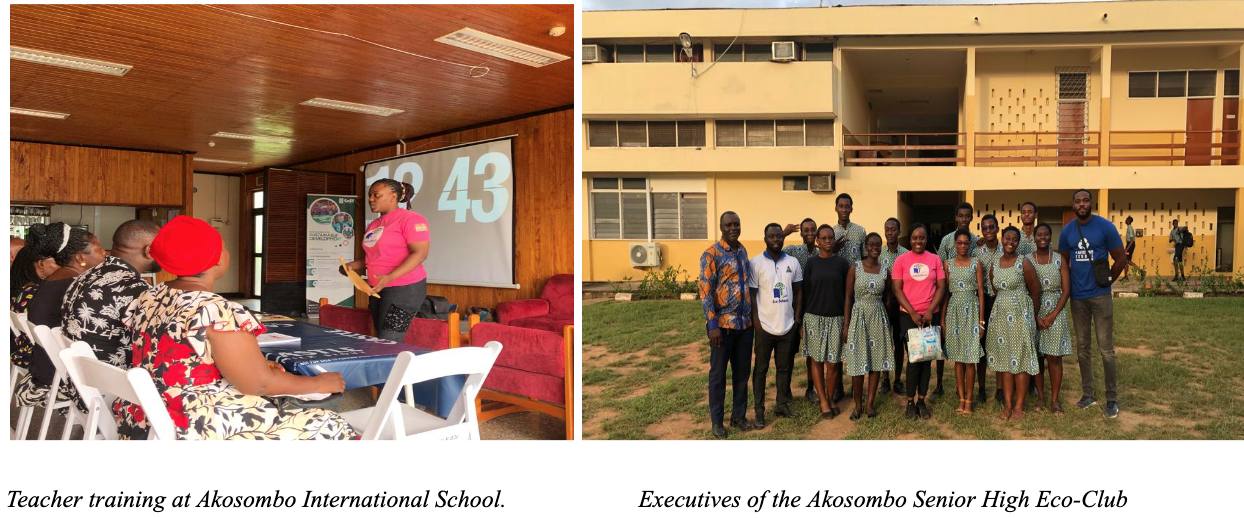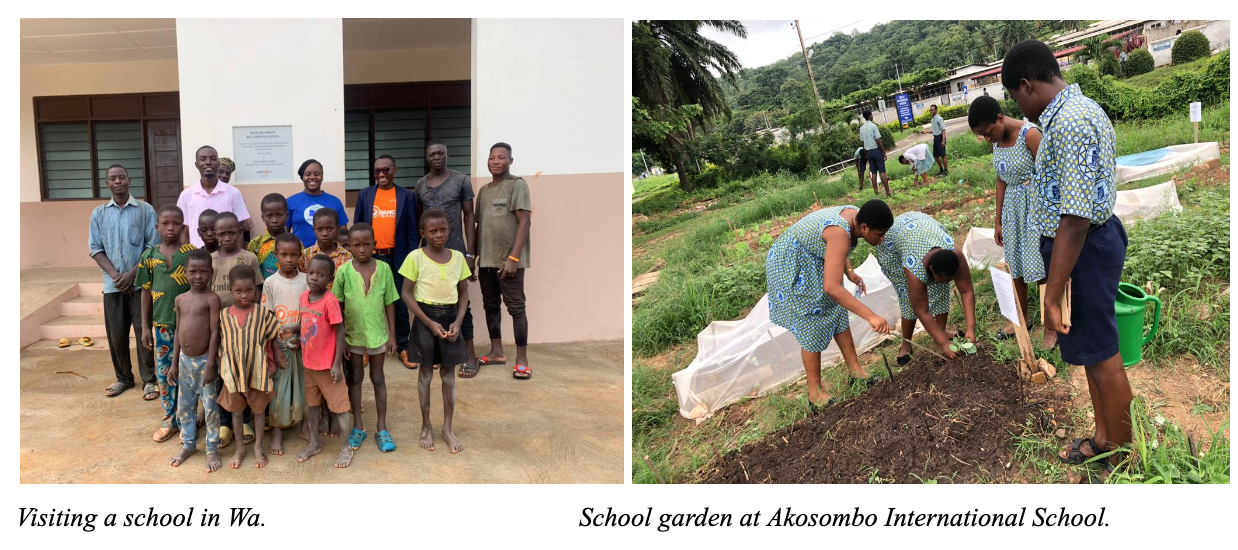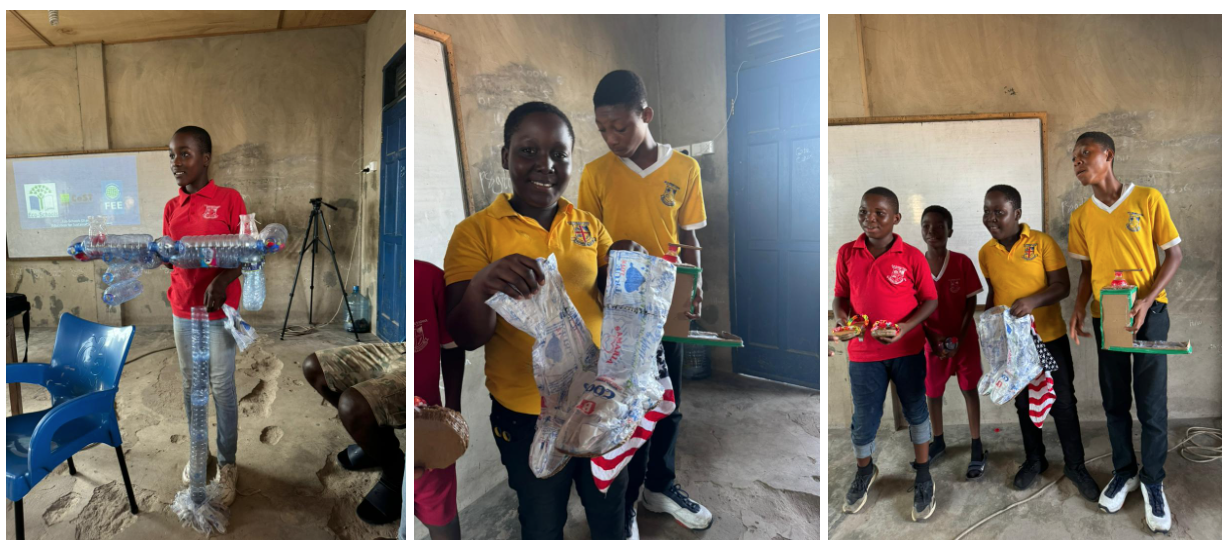Article By: Matilda Hoffmann, Cest
Eco-schools, is a global program that promotes Education for Sustainable Development (ESD) in schools in 51 countries around the globe, run by the Foundation for Environmental Education (FEE). Eco-Schools has currently commenced its maiden project dubbed, “Eco-schools Project Advancing Circular Economy (E-SPACE) in selected schools in Greater Accra, as well as in Eastern and Northern regions of the country.
The one-year project pilot focuses on advancing the principles of a circular economy, developing a ‘whole school’ programme for the age range of 6-16 years. Central objectives for the pilot is to build knowledge and critical thinking skills among both teachers and students, and to introduce them to new economic models that reduce waste and lead to the achievement of the Sustainable Development Goals (SDGs), Specifically SDG 12 that aims at responsible consumption and production patterns.
Speaking with CeST News, Olivia Adjoa Anamporiyah, the National Operator for Eco-Schools Ghana, stated that the ESPACE project encourages schools and students to adopt circular economy practices. The program's approach revolves around a well-designed framework and comprehensive lesson plans that were revived into the Ghanaian context, which proves instrumental in achieving a Circular Economy Compliance Schools.

Ms. Anamporiyah further stated that the E-SPACE project delves into the fundamentals of waste management, focusing on everyday materials such as paper, plastics, water, and food. By highlighting the importance of reducing and reusing these materials, the initiative aims to inspire a culture of responsible consumption, waste minimization, reuse and recycling among students and educators."The E-SPACE project comes along with framework and lesson plans that aid both the teachers and students to achieve a Circular Economy Compliance Schools," Olivia Anamporiyah added. She also highlighted the project's focus on exploring innovative ways to repurpose waste materials, providing valuable insights into transforming waste into useful resources.

Olivia Adoja Anamporiyah continued, "Three(3) regions in Ghana, namely Greater Accra, Eastern, and Northern, are currently witnessing the implementation of the Eco-Schools Advancing Circular Economy program in 15 schools," when asked if there are any plans of expanding the Eco-Schools Advancing Circular Economy program to other regions or schools.
In the interview, Ms. Anamporiyah provided additional insights into their efforts to bring the "Espace Project" to fruition. She revealed that her team has been engaged in visiting schools located in the Eastern Region and the North, with the primary objective of implementing the "Espace Project". During these visits, Ms. Anamporiyah and her team have been meeting with teachers to thoroughly explain the project's goals, benefits, and methodology. Furthermore, they have been meticulously inspecting the school facilities to ensure that they are adequately equipped to support the project's objectives.
She further expressed the program's vision, stating, "After this project, we are looking forward to working with any organization that wants to promote this Circular Economy E-SPACE initiative to various schools across Ghana." With this collaborative approach, the project seeks to extend its reach and make a lasting impact on a broader scale.
Ghanaian students partake in this invaluable educational journey, so they are equipped to become responsible stewards of the environment. Through this initiative, the Eco-Schools Advancing Circular Economy program aspires to mold a new generation of eco-conscious individuals, poised to drive the nation towards a brighter and more sustainable future. By harnessing the power of education, this transformative program stands as a testament to the pivotal role it plays in shaping a greener and more prosperous Ghana.

One student turned plastic bottles into a desk and a broom. Another student used empty sachets to create shoes. Other students created sandals (left student) out of cardboard and plastic bags and a water dispenser (right student) out of cardboard and a plastic bottle.
The timing of the pilot in Ghana is very good. The country is currently developing a framework to promote a circular economy under the leadership of Mr Oliver Boatchie at the Ministry of Environment, Science, Technology and Innovation (MESTI). UNIDO has also reached out to us as they are in the process of developing a center for Circular Economy in Ghana in 2024 and want to make sure that all actors in this space drive in the same direction.
CeST has also developed a crash course in Circular Economy translated to the main local languages in Ghana, e.g. Twi and Ga, English, French, German and Chinese to reach out far in the West African region.
As the “Espace Project” draws to a close, it does so with a sense of achievement and success that resonates through the communities it touched. Over its duration, the project transformed lives, providing new educational horizons, innovative teaching methods, and a renewed sense of hope for both students and teachers. The hard work, dedication, and vision of all those involved have borne fruit, with improved educational outcomes and empowered learners who are ready to face the challenges of a rapidly changing world. The “Espace Project” stands as a testament to what can be accomplished when innovation, passion, and education converge. While this chapter may be ending, the impact of the “Espace Project” will continue to ripple through generations, leaving an indelible mark on the landscape of education. The success of this project serves as an inspiring example of what can be achieved when a community comes together to invest in the future through education.